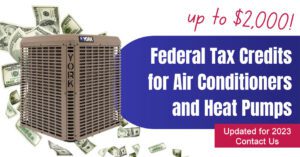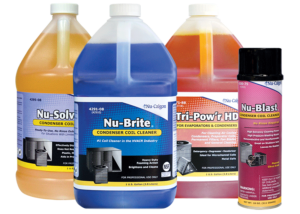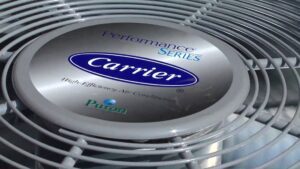If you’re in the market to replace your central air conditioning system and want to make the best decision possible in choosing the right AC equipment for your needs, it’s important you understand the difference between a single-stage, two-stage and variable speed air conditioners.
To keep it simple, the biggest difference between these air conditioning units are: 1. Operating efficiency (lower electric bills). 2. The cost of the equipment 3. Comfort and humidity removal. 4. Noise levels. 5. Cost of future repairs, if and when.
First, let’s take a look at some of the basics of these three types of air conditioning units.
BASICS OF SINGLE STAGE AIR CONDITIONING
The majority of homes in Fort Lauderdale have a central air conditioning system and use a single-stage compressor. These single-stage compressors were the standard for decades and they still represent the vast majority of AC units we service in the Fort Lauderdale area.
A single-stage compressor turns on when indoor temperatures exceed the temperature setting on your thermostat. For example, if you set the thermostat to 75 degrees, the air conditioner will run anytime indoor temperatures hit 76 degrees. After the AC cools the house back to 75 degrees, it will turn off again.
Single-stage compressors always operate at 100% capacity. In other words, they always run at full blast. They turn themselves on and off continuously throughout the day. These AC units are the lowest cost option to install but they cost more to operate (higher electric bill) than the two-stage and variable speed air conditioners. Single-stage AC units are also cheaper to repair (if and when) because they use less complex and expensive parts. However, they tend to be a little noisier when they operate (decibels) and cannot maintain an even, steady indoor temperature like a two-stage or variable speed.
BASICS OF TWO-STAGE AIR CONDITIONING
A two-stage air conditioning unit is a big step towards higher efficiency (lower utility bills) and does a great job of maintaining a steady indoor temperature without the warm and cool, on and off operation of a single-stage AC unit. Two-stage compressors achieve this because they run at two levels, high and low. It runs at full capacity when you need it to (when it’s 92 degrees outside) and at a lower level when you don’t.
Two-stage air conditioning (equipment) costs about 20% more than single-stage with the labor being around the same to install. Repairs are little more (if and when) but you will see lower electric bills, quieter operation and a better removal of humidity.
Variable speed compressors work differently. To maintain an indoor temperature that matches the setting on your thermostat, they operate continuously at less than 100% capacity – often as low as 25% or 30% capacity. As a result, they run for much longer cycles than single-stage AC units. In the summertime, they might run for all or most of the day!
Here’s one way to get your head around the difference:
- Single-stage compressors blast your home with cold air and turn themselves off when the desired temperature is reached.
BASICS OF VARIABLE SPEED AIR CONDITIONING
Variable speed air conditioning units are the top of the line in terms of efficiency, comfort and super quiet operation. Variable speed air conditioners operate almost continuously at anywhere between 25 to 100% of it’s rated cooling capacity and supply a smooth steady stream of cool air throughout your home. They are so quiet you literally won’t be able to tell if it’s on or off.
Variable speed air conditioners are the most efficient “green” option available with an astonishingly low operating cost (utility bill). However, the cost of the equipment is significantly more than a single-stage and around 20% more than a two-stage and future repairs are more expensive.
The variable speed compressor’s longer run times dehumidify your home noticeably better than a single stage unit and somewhat better than a two-stage. The idea is, the longer (humid) air is circulating through a cold indoor AC coil the more humidity will be removed.
SHOULD YOU UPGRADE YOUR AIR CONDITIONER?
Now that you understand the differences between single-stage, two-stage, and variable-speed air conditioning, you might be thinking about an upgrade to your existing air conditioning equipment. Before doing so, keep this in mind.
If it’s time to replace your AC and you love your single-stage unit, stick with that. Replacing an old 8 SEER single-stage AC with a new 14 SEER single-stage AC still results in a more efficient system and a lower electric bill. If you have humidity issues or a large home with tall ceilings and have the budget, then definitely consider getting a two-stage or variable speed AC unit.
If you have any specific questions or issues your having that you need answered contact us or call 954-298-0114 and we would be happy to assist you.





